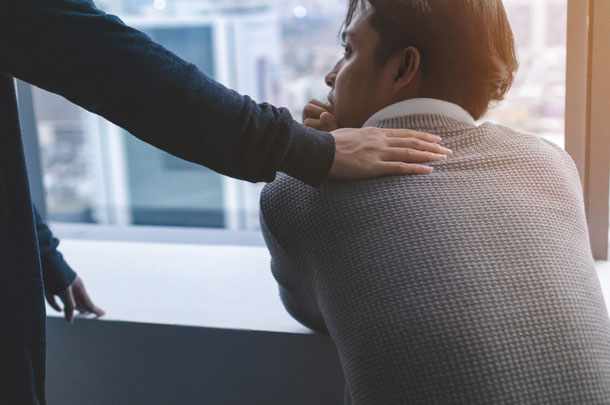WHAT IS THE MOST EFFECTIVE TREATMENT FOR PTSD?
Life is often full of ups and downs. While financial difficulties, relationship problems and bad days are certainly difficult to deal with, these hardships are usually manageable and quickly become a thing of the past. Sometimes life throws us a curveball, however, that is harder to overcome. Traumatic experiences such as violence, assault and abuse are more difficult to cope with and turn our world upside down, with lasting consequences that cause intense feelings of fear, stress and anxiety. When these symptoms last for more than a month and don’t improve, it may signify post-traumatic stress disorder, a mental health condition that can significantly impact your overall quality of life.
WHAT IS PTSD?
Post-traumatic stress disorder, or PTSD, is an anxiety disorder that is triggered by either witnessing or experiencing a traumatic event. Known as “shell shock” in the past, PTSD is often associated with the violence and trauma of war, but it can also occur after a serious accident, natural disaster, physical or sexual assault, abuse or neglect, a life-threatening medical diagnosis and other distressing experiences. While PTSD isn’t typically related to upsetting situations such as divorce or job loss, what we find traumatic differs from person to person. Symptoms also vary in severity with each individual but tend to interfere with daily life and cause significant problems at work, school or home and in personal relationships.
WHAT ARE THE SIGNS AND SYMPTOMS OF PTSD?
PTSD can manifest in numerous ways and has its own distinct set of triggers, causes and symptoms depending on the individual affected, but is characterized by intense and disturbing thoughts related to the traumatic experience and difficulty coping with them.
A PTSD diagnosis requires a resident to exhibit symptoms from each category, with many experiencing a wide array of symptom combinations and patterns. At Journey Hillside Tarzana, we know that every individual’s experience with trauma and PTSD is unique. To help men and women process their trauma in a safe environment, we offer integrated mental health care and trauma services backed by highly personalized treatment plans. With the right support and guidance, residents can learn to cope with their PTSD and overcome symptoms, triggers and co-occurring disorders such as depression or substance use.
The symptoms of PTSD are grouped into four categories, which include:
- Intrusive thoughts — Involuntary and recurrent thoughts, feelings and memories of the traumatic experience. This may include distressing dreams or nightmares, vivid flashbacks and intense physical or emotional reactions to reminders of the trauma.
- Avoidance — Purposefully avoiding places, people, activities and situations that may act as reminders or trigger upsetting memories. This can lead to isolation from friends and family, feelings of detachment and resistance to seeking help.
- Hyperarousal and reactivity — Intense emotions and always feeling on edge, irritable or angry. This often includes exaggerated startle reactions or jumpiness and physical symptoms such as increased heart rate and high blood pressure.
- Negative thoughts and feelings — Negative thoughts and distorted feelings of shame, guilt and blame related to the traumatic event.
HOW ARE PTSD AND ADDICTION RELATED?
After experiencing a traumatic event, the symptoms don’t just go away and often linger for months or even years. The brain struggles to process the high levels of fear, grief, stress and panic caused by trauma and sends out distress signals that lead to extreme emotional, physical and psychological responses. In this way, trauma changes the brain itself, impacting memory, mood, concentration and emotional regulation and more. To cope with these symptoms, many individuals turn to drugs or alcohol, which offer a brief respite from the pain and frustration they feel. Almost half (46.4 percent) of those with PTSD also have a substance use disorder, and in most cases, addiction developed after the exposure to trauma. While drugs or alcohol might offer temporary relief from the symptoms of PTSD, it often worsens the situation as the problems of addiction set in. Financial difficulties, health problems, social isolation and a decreased ability to cope can exacerbate the symptoms of PTSD and make it harder to treat.
When PTSD and addiction occur together, it’s known as a dual diagnosis. Unfortunately, it can be difficult to recognize when someone is suffering from both PTSD and addiction because the symptoms often overlap. Outbursts of anger, feeling jittery or anxious, isolating from friends and family, and intense emotional reactions can be mistaken for withdrawal or the effects of certain drugs, so it’s not uncommon for individuals to receive treatment for one disorder and not the other. This drastically reduces treatment outcomes and increases the risk of relapse, making it essential to address both disorders simultaneously to ensure that residents receive the comprehensive care they need to heal.
TREATING PTSD AND ADDICTION AT JOURNEY HILLSIDE TARZANA
At Journey Hillside Tarzana, we understand the complex connection between PTSD and addiction. The experiences of trauma run deep and affect individuals in significant ways, sometimes leading to the development of mental health concerns, substance use disorders and other self-defeating behaviors that arise as a way to cope. To give residents with PTSD the best chance at achieving meaningful recovery, we’ve integrated mental health care and trauma services into our treatment programs. Our dedicated team of professionals helps residents understand how their trauma and substance use are related so they can begin to work through the issues that are holding them back. By providing comprehensive dual diagnosis treatment in a private, comfortable setting, our goal is to ensure a deeply therapeutic experience where clients can learn new coping skills, establish healthier habits, and build a strong foundation for lasting recovery. Some of the techniques and treatments we use include:
- INDIVIDUAL AND GROUP THERAPY
- TRAUMA SERVICES
- HOLISTIC MODALITIES
- 12-STEP INTEGRATION
- COGNITIVE BEHAVIORAL THERAPY (CBT)
- DIALECTICAL BEHAVIORAL THERAPY (DBT)
- MEDICATION-ASSISTED TREATMENT (MAT)
We understand that everyone’s experience with trauma and substance use is unique, so our treatment plans are highly personalized and incorporate a wide array of innovative therapies that appeal to residents from all walks of life. We also offer specialty programs that build and expand upon 12-step methodology, blending traditional and alternative treatment methods for a well-rounded approach that helps residents heal in their own way.
CONTACT JOURNEY HILLSIDE TARZANA
If you or someone you love is struggling with the effects of trauma and substance use, Journey Hillside Tarzana can help. Tucked away in the quiet hills of Los Angeles, our facility provides a safe space for clients with PTSD and other co-occurring disorders to heal from addiction and recapture a sense of peace, balance and hope for the future. Contact or call us today at 833-7JOURNEY (877-414-1024) to learn more about our programs and how they can help.



